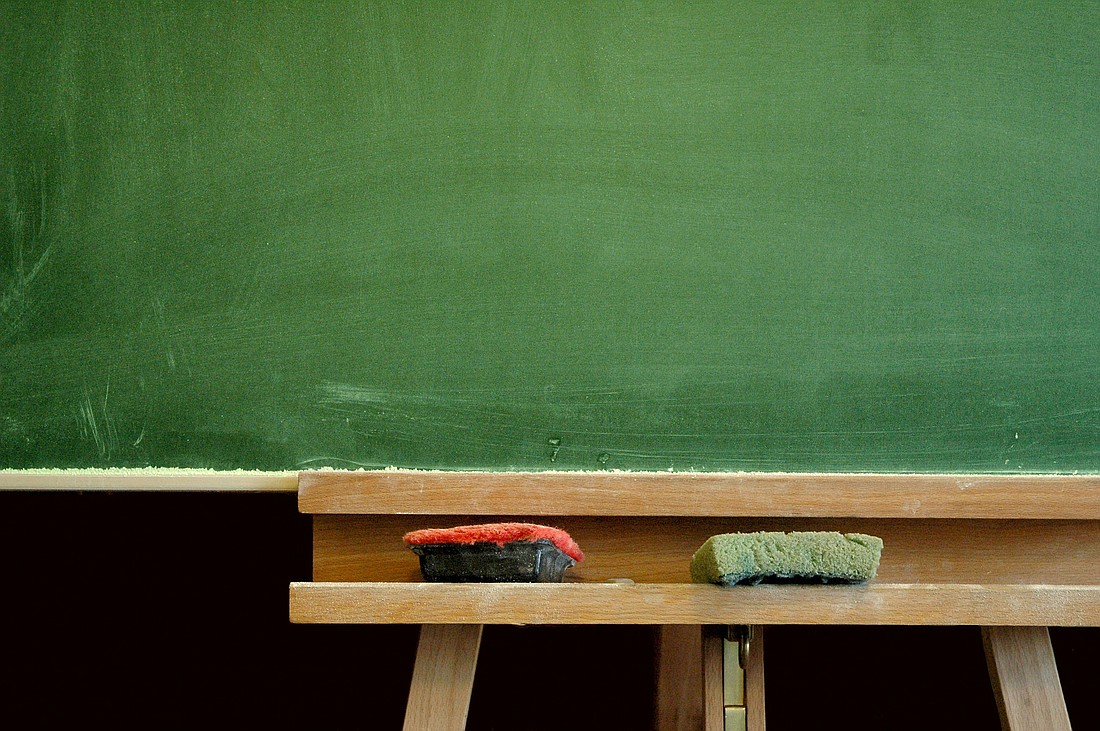- April 26, 2024
-
-
Loading

Loading

It’s been five months since the Southern Poverty Law Center filed its complaint against Flagler Schools, which said the district’s disciplinary procedures are harsher for black students than white students. A lot has happened since then.
For one, the U.S. Office of Civil Rights launched an investigation in late November into the complaint.
“This doesn’t happen very often,” said Stephanie Langer, a staff attorney at the SPLC. “It tells us the government sees substance to our complaint.”
In addition to that, the center has been inundated with more complaints from parents and students about their treatment in schools, Langer said. Much of her recent work has involved adding those cases to her files.
“Flagler’s an interesting county,” Langer said. “Because it’s so small, I think people were hesitant to speak out. But once people saw that we were serious and moving forward and trying to fix the problem, more people started coming forward.”
The SPLC filed its complaint against five school districts in Florida: Flagler, Bay, Escambia, Okaloosa and Suwannee. The complaint includes data and anecdotal accounts of students who say they were punished harshly for minor acts of misconduct, leading to a disproportionate number of suspensions and expulsions for black students than for whites.
Langer said this is a problem throughout Florida, not one unique to the counties where complaints were filed. Flagler was selected because it was one of the worst, she said, citing an example she heard recently about a Flagler kindergarten student.
The student was not allowed to have sweets at school per his parent’s direction. His classroom had a system in place in which tokens were used in exchange for treats or privileges.
The student was discovered asking his students to give him their tokens so he could buy ice cream, Langer said. He was disciplined for attempted theft.
The case joined others in Langer’s file.
Also since the complaint was filed, a settlement was reached in a similar case in Oakland, Calif, in which the school district developed a plan for dealing with disparity in disciplinary actions. Langer said she hopes that settlement could act as an example for Florida schools.
And finally, Sen. Dick Durbin is chairing a hearing Wednesday on school-to-prison pipelines before the Senate Judiciary Subcommittee on the Constitution, Civil Rights and Human Rights.
The school-to-prison pipeline is central to the SPLC’s complaint. The term refers to the pattern of students being pushed out of schools and into the juvenile justice system by enacting harsh discipline, including in-school arrests for nonviolent infractions.
“What the SPLC found is that (black) kids are being arrested in schools, more often and for less serious crimes than their white counterparts,” Langer said.
Florida is known for its high rate of youth incarceration. It’s the only state that has sentenced juveniles to life in prison without parole for burglary or carjacking. Of those life sentences, 84% are given to black youths, according to the Public Interest Law Center at Florida State University.
Between the presence of police in schools and policies that are quick to issue suspensions, Langer said, students can become disenchanted with school or law enforcement, leading to dropouts and criminal activity.
“We aren’t saying that kids who act out shouldn’t be punished,” Langer said. “But we need to rethink how (it’s done).”
Her words echo sentiments brought before the Flagler County School Board Tuesday.
Linda Haywood, president of the Flagler County NAACP spoke on behalf of a 13-year-old student who was suspended for defending herself in a fight. The student had no disciplinary history. She was suspended in accordance with the district’s no-tolerance policy for fighting.
The student’s parents had been trying to contact school administrators for days to speak about the child’s discipline, Haywood said. They haven’t heard back.
This breakdown of communication between educators and families leads to problems, Haywood said. Another parent voiced similar concerns.
School Board member Colleen Conklin said this was the first she’d heard of the issue. The board resolved to look into it, and Conklin urged parents having a problem communicating with their schools to call board members.
“I absolutely agree with you,” she said. “We need to have the conversation.”
For the SPLC, issues like this are precisely why the complaint against Flagler was filed. They want to see the system scrutinized.
“We’re criminalizing kids for being kids,” Langer said. We’re arresting them for classroom discipline issues. We just want schools to look again at their discipline policies.”